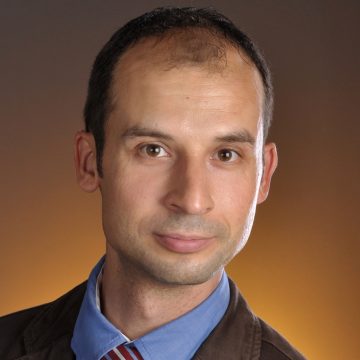Religion and politics in contemporary Russia

Tobias Koellner,
Dr. phil. habil., Senior Research Fellow,
Witten/Herdecke University,
Germany
After seven decades of persecution and harassment in the Soviet Union, religion re-emerged in the public sphere and is one of the crucial social forces in Russian society today. In particular, Orthodox Christianity as the religion of the majority has become one of the important powers in Russian society and has considerable impact on everyday life. Examples for this include the making of new landscapes based on the restitution of property to the Russian Orthodox Church and the refurbishment or church buildings, the introduction of new rituals and festive days with political and religious notions, the erection of new monuments that emphasize religious nation-building, and the introduction of religious education in public schools on a nationwide scale. Remarkably, all these examples show connections to both religion and politics and thus provide evidence for a close entanglement between the Church and the political administration. As a result, I argue that contemporary Russia is characterized by two centers of power, which leave the most important influence on current, and, most probably, future developments: Orthodox Christianity and the political sector.
Based on long-term ethnographic fieldwork between 2013 and 2016, the relationship between politics and religion in contemporary Russia is depicted as a complex and open-ended process of cooperation, negotiation, and confrontation between two powerful actors. As became obvious during research, neither side is able to instrumentalize the other completely or permanently. For this reason, the notion of legitimacy, so much appreciated and used by political scientists and others in their understanding of contemporary Russia, becomes problematic. One reason for this is the fact that neither Russian Orthodoxy nor Russian politics are to be regarded as uniform spheres. Relations between both do exist at the local and regional, as well as national levels. Ethnographic field research, then, offers a good basis for documenting this complexity and for presenting the diversity, inconsistencies and disagreements within the two areas. Indeed, a strong focus on the regional and local levels, without ignoring events at the national level, is crucial. Misunderstandings, conflicts and competitive situations between Russian Orthodoxy and politics occur much more frequently on the local level. Nevertheless, my research also found that many initiatives are inspired or initiated at the national level, but only a small part of them are provided with the corresponding support or the necessary financial resources to be realized.
At these local levels, it became obvious that Russian Orthodoxy and politics are deeply entangled. Therefore the concept of ‘entangled authorities’ was developed to draw attention to the close relation between both sides. Although an entanglement might look very much the same as the outcome of a close cooperation, the processes involved are complex, not straightforward, and include a great number of unintended results. Consequently, entanglements are not to be understood as the glorious implementation of a well-thought-out plan. Instead, they are the result of social interactions, which might have had completely different goals and intentions.
To understand the ‘entangled authorities’ of contemporary Orthodox Christianity and politics in Russia, there are three different yet interrelated aspects: 1) personal acquaintances between individual actors, 2) institutional connections between the two fields that have developed at the latest since the end of socialism and 3) ideological convergences that are based, for example, on an emphasis to find an ‘authentic Russian way’, an equation of Russian culture and history with Russian Orthodoxy, and a widespread rejection of ‘the West’.
In my research, I am able to show close personal links between politicians at the local, regional and national levels and their counterparts at the equivalent level in the Russian Orthodox Church – priests and monks, bishops and archbishops. The latter are extensively consulted about political decisions and, quite often, this results in institutional entanglements when joint commissions, organizations or educational structures develop. Nevertheless, my research also outlines that, despite working closely together, there are many tensions when it comes to practical implementations or competition for scarce resources. To sum my findings up, it is fair to say that despite this close cooperation the outcomes of these interactions are not predetermined and quite often lead to unexpected or even unintended consequences.
More details could be found in the latest book by Tobias Koellner “Religion and Politics in Contemporary Russia: Beyond the Binary of Power and Authority” published by Routledge in 2021.
Email: tobias.koellner@uni-wh.de
Expert article 3008
> Back to Baltic Rim Economies 4/2021
To receive the Baltic Rim Economies review free of charge, you may register to the mailing list.
The review is published 4-6 times a year.
